Plot Synopsis
In the early years of the Tang Dynasty, the loss of thePhoenix Seal, which symbolized the Empress'spower, triggered an event known as the "Phoenix Seal Case" where current officials were executed under false charges. This incident caused a stir in the court, with the conservative faction appearing unharmed on the surface but secretly intensifying their conspiracies. At this time, Di Renjie, who waspreparing for the imperial examination, unintentionally became involved in a mysterious murder case. The drama begins with Di Renjie, through his investigations, discovering a connection between the murder case and the loss of thePhoenix Seal. It tells the story of Di Renjie solving various extraordinary cases across different regions,punishing corrupt officials,protecting the coast, eliminating dark forces, upholding the law, and assisting thepeople. At the same time, he unravels the mystery of his own identity, showcasing Di Renjie'sphilosophy of integrating knowledge and action in his life.
Episodes Recap
- 1-4
- 5-8
- 9-12
- 13-16
- 17-20
- 21-24
- 25-28
- 29-31
Episode 1 : "Di Renjie solves the Night Pearl Case with his intelligence.
Episode 2 : Title: The Fire Case at Ju Shui Tower in the Di Ren Jie Series
Episode 3 : Di Ren Jie found all the evidence pointing to Zhang Sun Qing.
Episode 4 : "The Phoenix Seal is fake.
Episode 5 : Di Ren Jie encountered a male corpse on his way to assuming office.
Episode 6 : Four Lacquer Screens Curse Triggers Wife Murder Case.
Episode 7 : Teng Kan avenged Li Han for his wife.
Episode 8 : Teng Kan is the killer.
Episode 9 : The mysterious ghost ship involves a former dynasty organization.
Episode 10 : Yu Su was forced to confess.
Episode 11 : Official ship surrounded by black flames, in danger of being destroyed.
Episode 12 : Hou Yu suffered the consequences of his own greed.
Episode 13 : The True Form of the Rain Master.
Episode 14 : Joe Tai was almost killed due to his identity as a deserter.
Episode 15 : Di Renjie identified the true culprit and went to Lanfang to take up his post.
Episode 16 : Li Tao's suicide raises suspicions about the motive behind it.
Episode 17 : The death of Li Tao led to the pursuit of the Dark Flower.
Episode 18 : Either Qiu Yue is the murderer, or it's Li Tao who committed suicide.
Episode 19 : Han Yongnan disappeared.
Episode 20 : Zhou Changyi sacrificed himself for the country, taking the place of his superior.
Episode 21 : Di Ren Jie suffered both physically and mentally in order to uphold the laws of the Great Tang Dynasty.
Episode 22 : Di Ren Jie was led to Qingchuan Town.
Episode 23 : Di Ren Jie was trapped while sneaking into the warehouse at night.
Episode 24 : Wei Sheng is the murderer.
Cast & Role
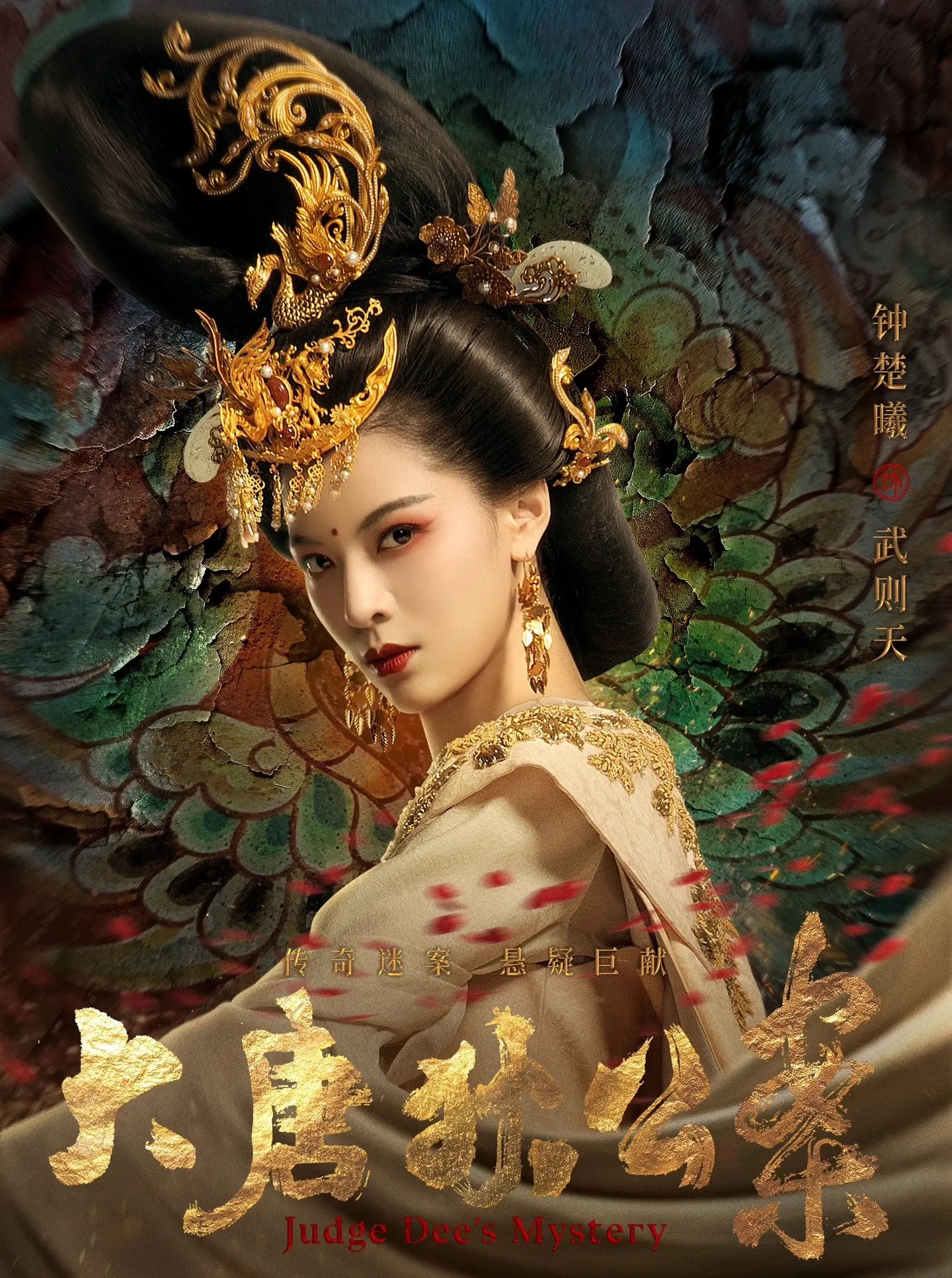
The Queen
(Zhong Chu Xi)
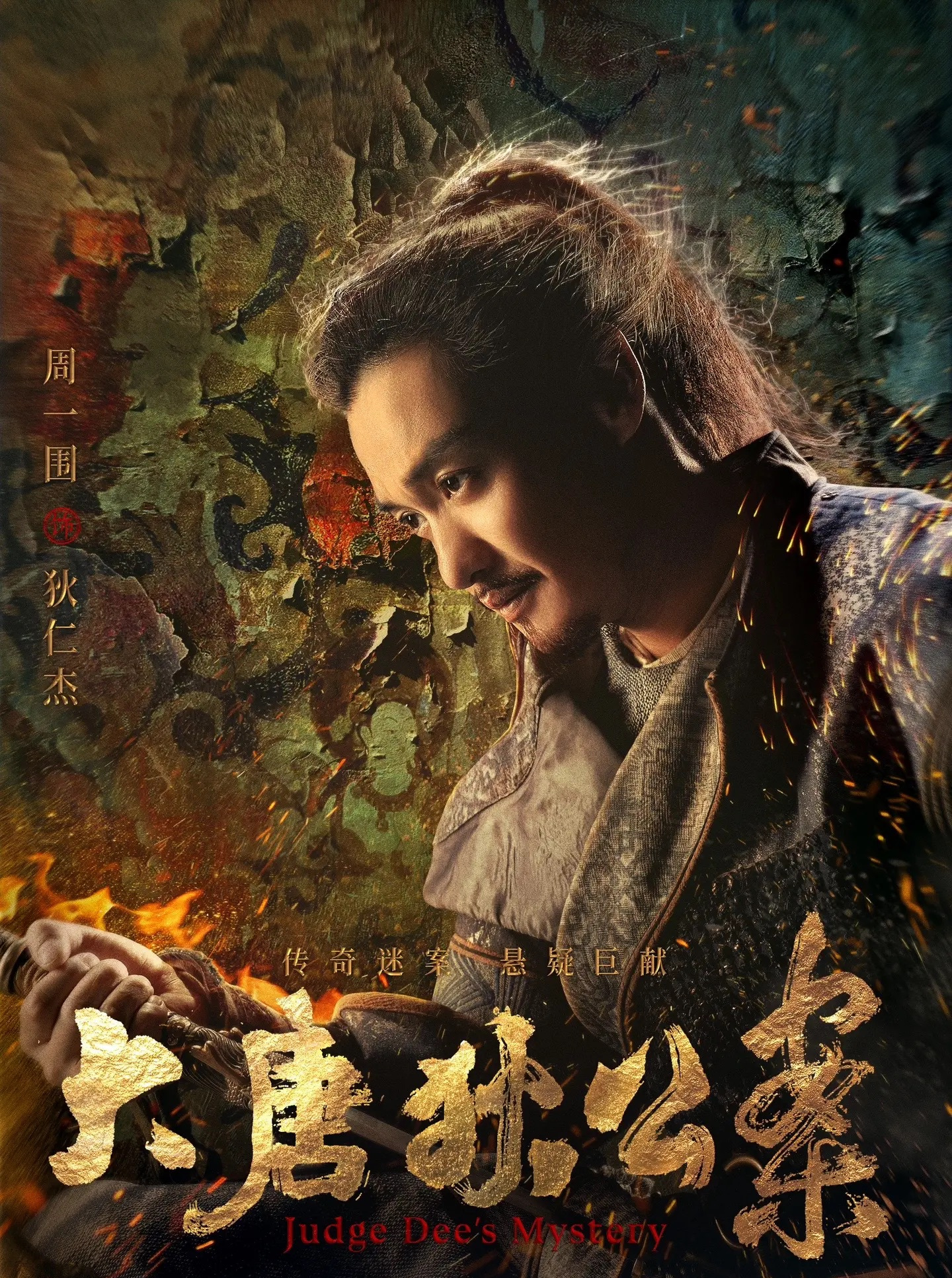
Di Ren Jie
(Zhou Yi Wei)
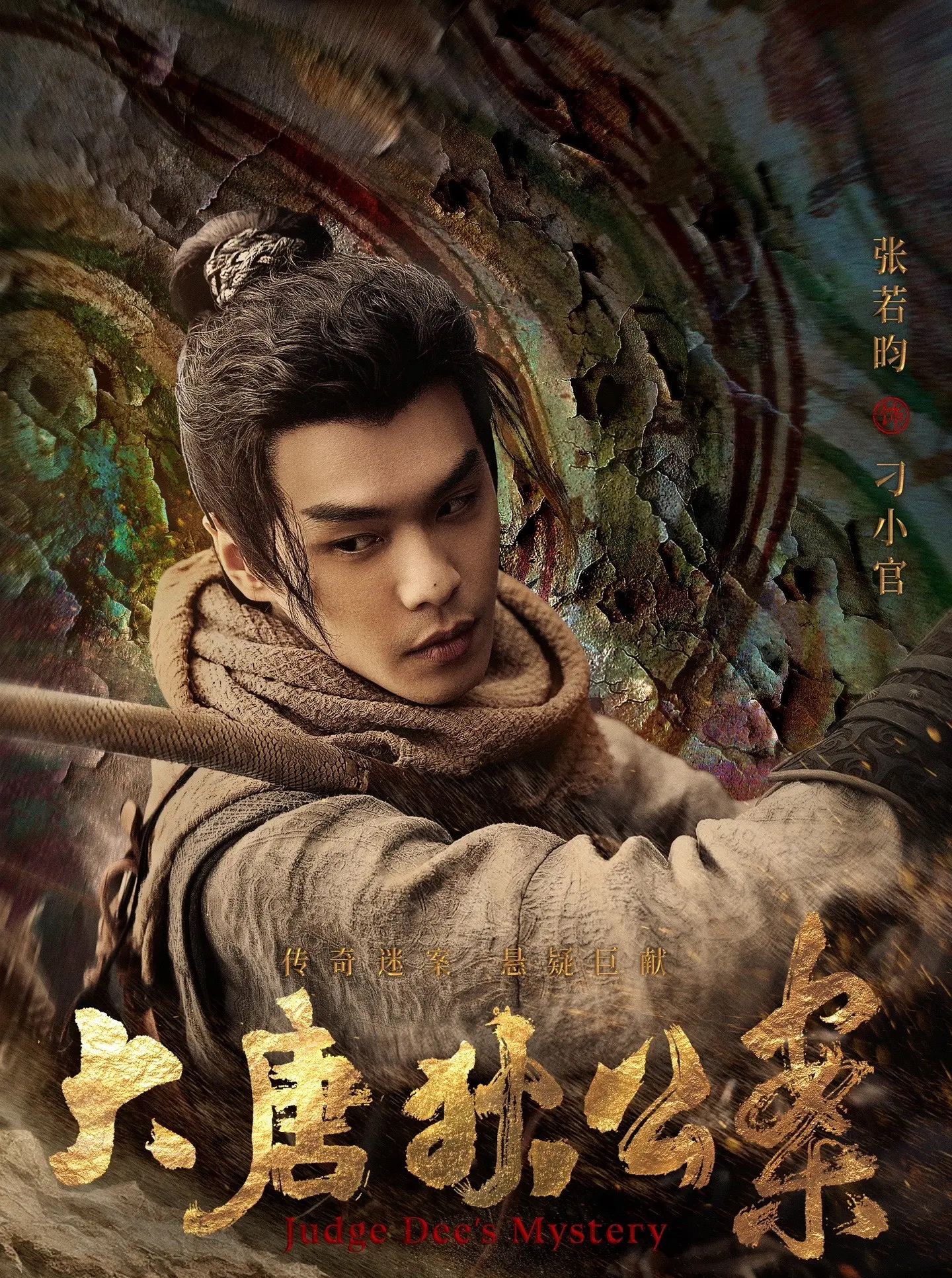
Diao Xiao Guan
(Zhang Ruo Yun)
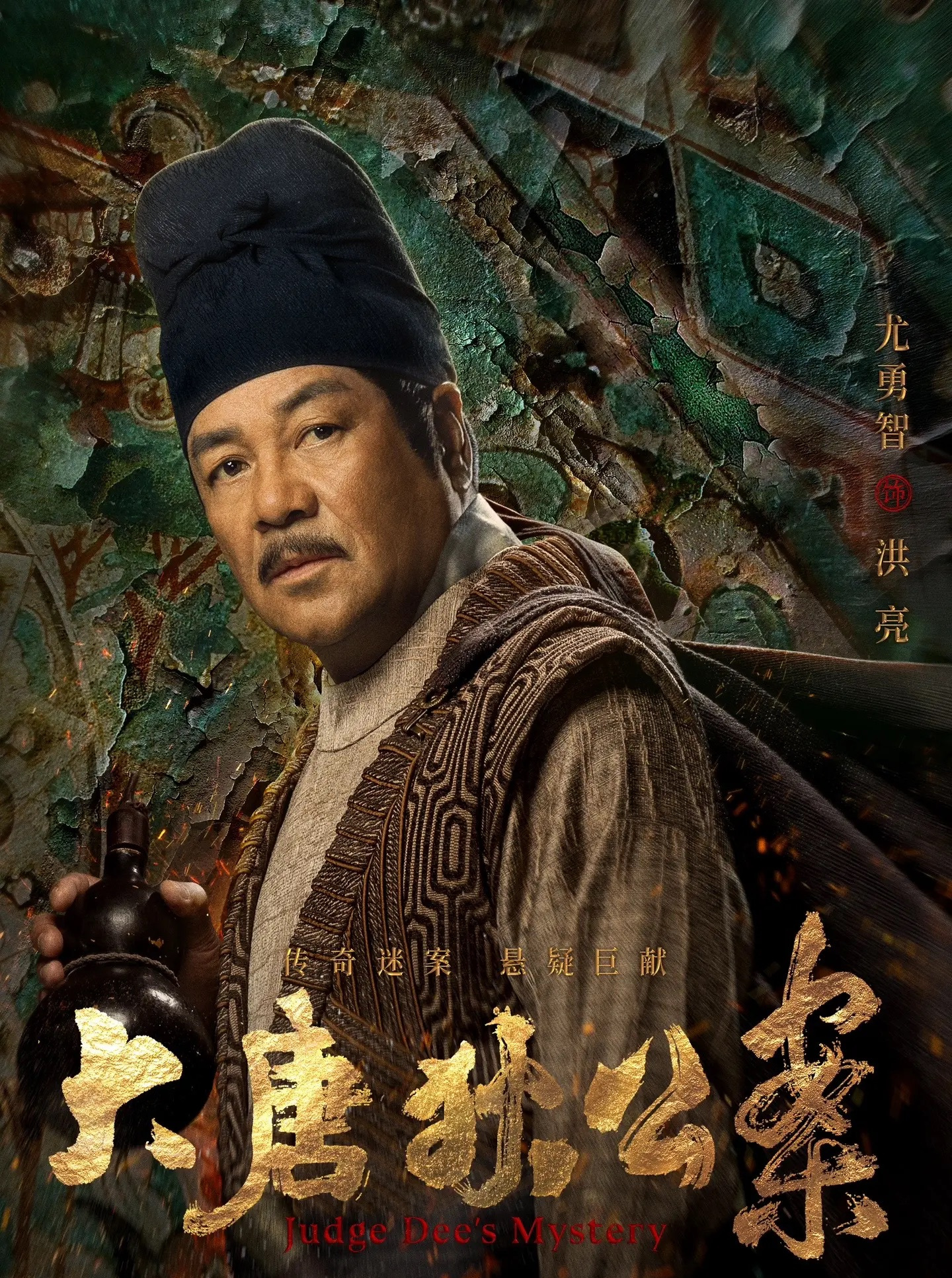
Hong Liang
(You Yong)
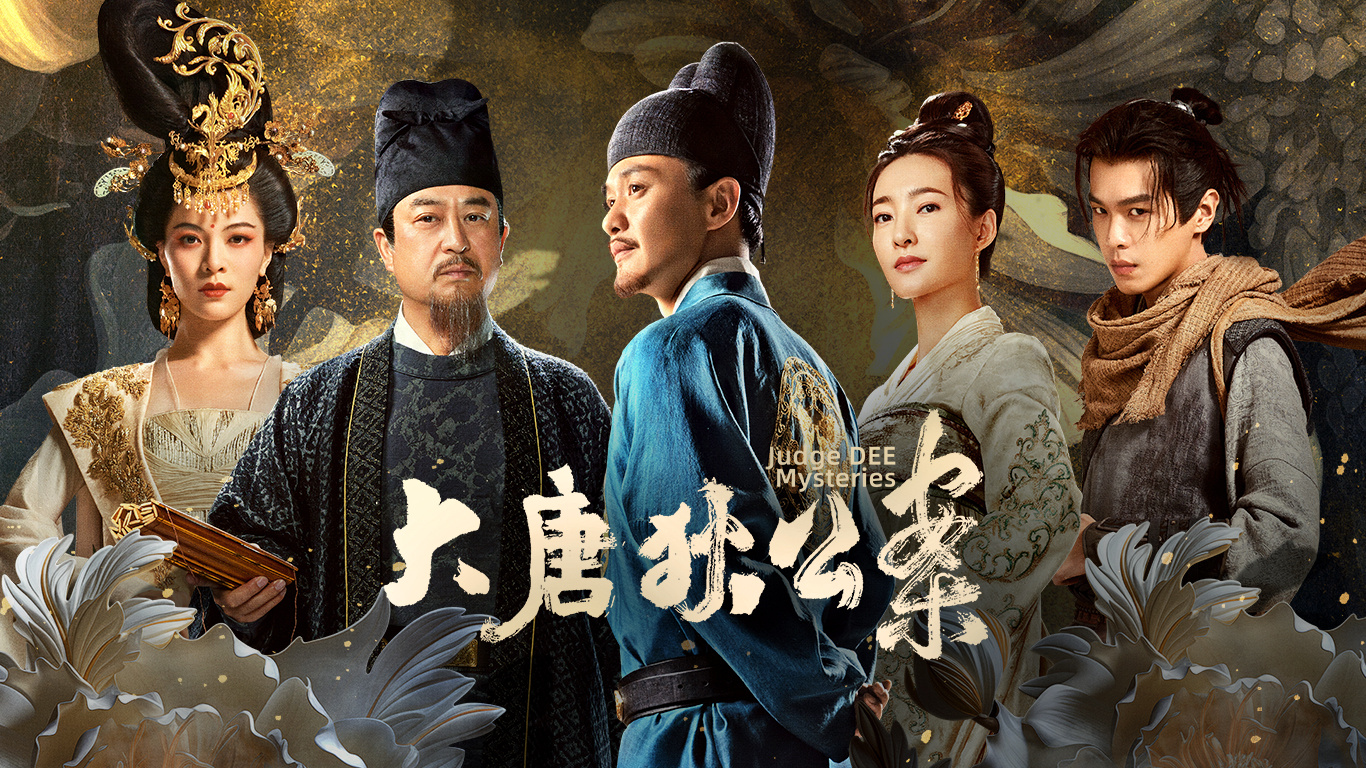
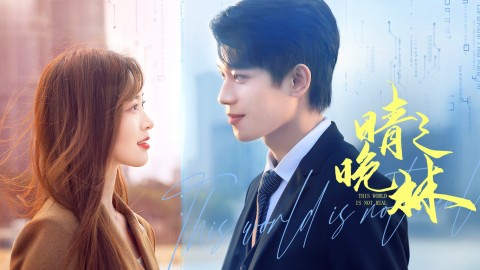
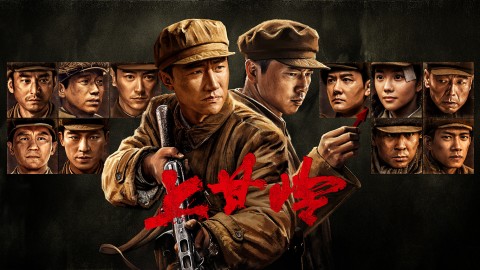
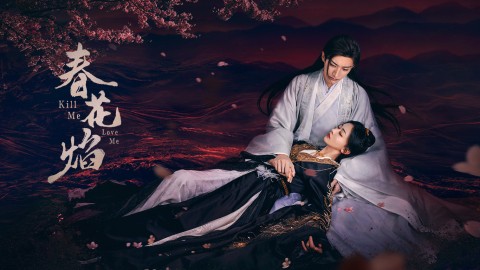
I would prefer if TV dramas didn't use filming techniques commonly seen in movies. It's difficult for me to stay engaged for a long time, although it could be my personal issue.
It gives me the impression that there are various filming techniques and the equipment used is probably good. The filters also appear to be high-quality. However, it's hard to be immersed in the storyline.
On one hand, it could be due to the dubbing, and on the other hand, there are too many techniques that don't feel realistic.
After watching the entire series, I think Zhou Yiwei's acting is decent and commendable. However, the plot, including everything else, is quite lackluster. I'm very dissatisfied with the ending of the first part, and I hope the second part can satisfy me a bit more.
Personally, I still think "Tang Dynasty Mysterious Book Record" is more enjoyable to watch. At least each case in that series is thrilling and brings a certain level of excitement.
That Zhong, I can only say he deserved to die... You can be willful, but at least consider the feelings of the other people who have been with you for so many years.
Can't you just divide the family and give some money to others, and then live a good life with Ying'er? Do you have to make it a complete mess?
Ah, this drama really lacks attention to detail. How could Di Ren Jie refer to himself as "Huaiying"? It is extremely disrespectful in ancient times. Di Ren Jie's courtesy name is "Huaiying." He should refer to himself by his given name, which is a humble form of address.
Referring to oneself by the courtesy name implies contempt for others! Additionally, Ma Rong is his subordinate, so it's unlikely that he would directly address Di Ren Jie by his name. In contemporary times, it's unimaginable for subordinates to address their superiors by their names.
It would be extremely impolite. At the very least, Ma Rong should address him as "Diren" to show respect. Furthermore, Di Ren Jie's father would not refer to his own son as "Huaiying." In ancient times, elders would address younger generations by their given names rather than their courtesy names.
This distinction in addressing reflects the difference in status. How could his father lower his own status and disregard proper etiquette? The use of courtesy names is reserved for peers and colleagues as a form of respect and honorific address.
If it weren't for the three words "Di Ren Jie," who would watch this drama? The Rain God Legend arc was terribly disappointing! Without the grandeur and epic nature of the Golden Case, the storytelling in this segment feels particularly childish.
I used to think Zhou Yiwei's acting was good, but after watching this drama, I sincerely hope he won't play these high-intelligence characters anymore.
He's only suited for muscular tough guy roles!
The first two cases were a waste. They didn't highlight Di Ren Jie's deductive abilities at all. Looking forward to some excitement in the later episodes. There were too many scenes focusing on Di Ren Jie's body movements and language in the first two cases.
His body movements and language should be performed by someone else, and Di Ren Jie should rely on his eyes to act, which would be better. To put it plainly, the first two episodes were overdone, lacking any sense of pressure or tension for the audience.
It felt like once Di Ren Jie arrived, the cases were naturally solved. The foreshadowing wasn't deep enough, and it was not difficult to guess that all the cases would ultimately point to the imperial power.
Overall, it seems like the screenwriter was afraid that the audience wouldn't understand the story. On the contrary, leaving the case details ambiguous and letting the audience guess would create more desire.
It's a good story, but the execution is not good. It lacks the audacity to overturn and start over. They should learn from Wong Kar-wai.
If there were no laws, everyone could take matters into their own hands and punish the criminals they see. But in that case, there would be more innocent people unjustly killed than actual criminals.
The existence of laws is meant to reduce such occurrences. Laws need improvement, but sacrifices along the path to perfection are unavoidable. You may choose to let them go now, but what about the next time?
When someone else uses the same reasoning to justify the killing of an innocent person, how will you respond with your previous act of "letting go"? Those in positions of power cannot simply be bystanders, only concerned with the immediate present.
In the TV series, Di Ren Jie killed a minor official, and in the end, the wolfhound arrived. He prioritized saving a child and didn't take care of Han Yongnan, who was subsequently killed by the wolfhound. Surprisingly, he didn't face any legal consequences for his actions.
Throughout the series, Di Ren Jie emphasized the importance of upholding the laws of the Tang Dynasty. However, in the end, he himself didn't abide by the law.
I suddenly feel like I understand a bit now. The Black Flame should be divided into two factions, or someone is impersonating them. Di Ren Jie's father is likely connected to the more normal faction. The reason Diao Xiao Guan committed suicide later on is probably because he identified with Di Ren Jie.
Di Ren Jie mentioned that murderers should pay with their lives, so Diao Xiao Guan chose to die by Di Ren Jie's hands. The note that the Cloaked Figure received later on should also be written by Diao Xiao Guan. Perhaps they were waiting for an official who would benefit the people.
First of all, there are way too many rainy scenes. Secondly, the camera movements are dizzying and make my eyes feel strained. Thirdly, the night scenes are meant to create ambiance, but the combination of night scenes and the camera movements only results in blurriness.
Fourthly, the overall color tones are too dark. I can only see clearly when watching on a phone with the lights off at night. Fifthly, in the first chapter, the main characters' image and personalities were not well-established.
Lastly, I don't understand why they added the female thief character to the team. Even if you introduce a highly skilled female martial artist, it would be more appealing than this in terms of sensory experience.
I used to watch dramas based on looks, and although Zhou Yi Wei is handsome, he's not my type, so I never followed his dramas. However, I accidentally came across a short film and realized that he has great acting skills. This is the first time I've followed one of his dramas, and I was completely engrossed in his performance.
I've been anxiously waiting for several days for the next episode to come out. His acting is explosive, and because of his talent, I think he's incredibly outstanding! I really like him!
I was a bit disappointed after watching it. The early episodes were alright, but it became more and more ridiculous after they arrived in Lanfang. Apart from the logical loopholes, I felt that the character of Di Ren Jie, who was supposed to be very intelligent, turned into a reckless person later on.
Especially in the last story, even though he was severely injured and unable to take care of himself, he recklessly put himself in danger, almost causing harm to himself. I haven't read the original work, so I don't know if it's the same in the source material.
It started off well but went downhill. I hope the second season will make some improvements.
Just finished watching the first episode, and that scene at the inn was so exhilarating. There should be more TV dramas like this that can evoke our national pride. I don't like watching those dramas where everyone calls themselves slaves.
It's too demeaning and lowly. The officials of the Ming Dynasty referred to themselves as subjects, not slaves, in front of the emperor. The Tang Dynasty was the pinnacle of the Chinese nation, and during that time, the grandeur of envoys from all over the world coming to pay tribute was truly spectacular.
Wasting twenty years of someone's life! Saying that you only want to live your own small life, but what kind of small life is it to be with a crazy woman? Lin, the shopkeeper, was right. If the crazy woman had found out, you would have suffered a terrible fate.
Lin, the shopkeeper, had worked diligently for twenty years, helping you expand and strengthen your business, but in the end, you messed it all up by fooling around with a crazy woman. It truly wasted twenty years of his life.
If it were me, I would be angry too. I really understand Li, the shopkeeper. That family deserves what they got.
I can't believe there's a love subplot. Shouldn't Di Ren Jie focus on solving cases? I've followed the entire Di Ren Jie series, including the novels and radio dramas, and this is the first time I've seen a romantic storyline.
And the main characters, they look like Beauty and the Beast. They're already married, so why are they still dating? I've watched Zhou Yi Wei's variety shows, and seeing him in a romantic relationship in the drama is really hard to immerse myself in!
In the second story, the husband kills the adulterous couple, but the entire story portrays the cheaters as if they did nothing wrong. There is no condemnation, and the values depicted are distorted.
Moreover, the final evidence can be considered insufficient. They claim that the wife's manuscripts were sent to the capital city, and these manuscripts were poems that the husband didn't have time to copy.
They use this to prove that all the husband's previous poems were copied from his wife's work? What kind of logic is that? It simply doesn't make sense. If you want to prove that the husband became famous by copying his wife's poems, you should provide evidence showing that the wife wrote a particular poem first, and then the husband used it to gain fame.
In the drama, the logic is that the wife wrote some poems with a similar style to the husband's, so they conclude that the husband must have copied all his previous work. Furthermore, they suggest that the man couldn't possibly write poems as delicate as the woman's.
What kind of stereotypical reasoning is this? Are they serious? Seriously, did the screenwriter never study logic? Any sane person would recognize the insufficiency of this evidence. Can they really convict someone of deceiving the emperor based on this?
Are you alright?
Wei Shi said that Di Ren Jie's father, Di Zhixun, was the Left Minister, which is not accurate at all. After all, he is a historical figure, and there is evidence to follow.
How can he speak so recklessly? It's clear that his grandfather, Di Xiaoxu, was the Left Minister, a founding hero of the dynasty. But his father is also impressive, it's just that the portrayal of his identity here is problematic.
It's really enjoyable to watch. It's not the kind of show that keeps you up all night to binge-watch, but it gives you a comfortable feeling while watching. It's not the type of plot that forces you to stay up late to find out what happens next, nor is it the kind of storyline that you lose interest in after watching a few episodes.
It's the kind of show that you can watch during your free time and feel relaxed. And after watching it, you feel more engaged in your usual tasks because watching a relaxing show during leisure time puts you in a comfortable state of mind.
Overall, the actors' performances are still solid, but there are some slight shortcomings. First, the plot feels a bit dragging, and there are some parts that seem unnecessary. Second, the process of step-by-step clue searching in the storyline feels fragmented and lacks some logic.
Many things are not clearly explained, such as the discovered fingernail prints and the hair strands on the forehead. Hopefully, the upcoming plot can have better continuity and stronger logic.
Not only is Black Flame his brother, but Di Ren Jie's father also committed suicide because of him. There are several clues to support this:
1. Black Flame knew Di Ren Jie's father.
In the plot, it is mentioned that his father refused to cooperate with Black Flame and chose to commit suicide. One of the main reasons for this decision is because Black Flame is his son.
Additionally, when his brother was kicked out, he also said that he would come back.
2. Black Flame knows the folk songs of the Bingzhou region. This has been mentioned more than once in the drama.
3. Black Flame did not actually try to kill Di Ren Jie, again because he is his brother.